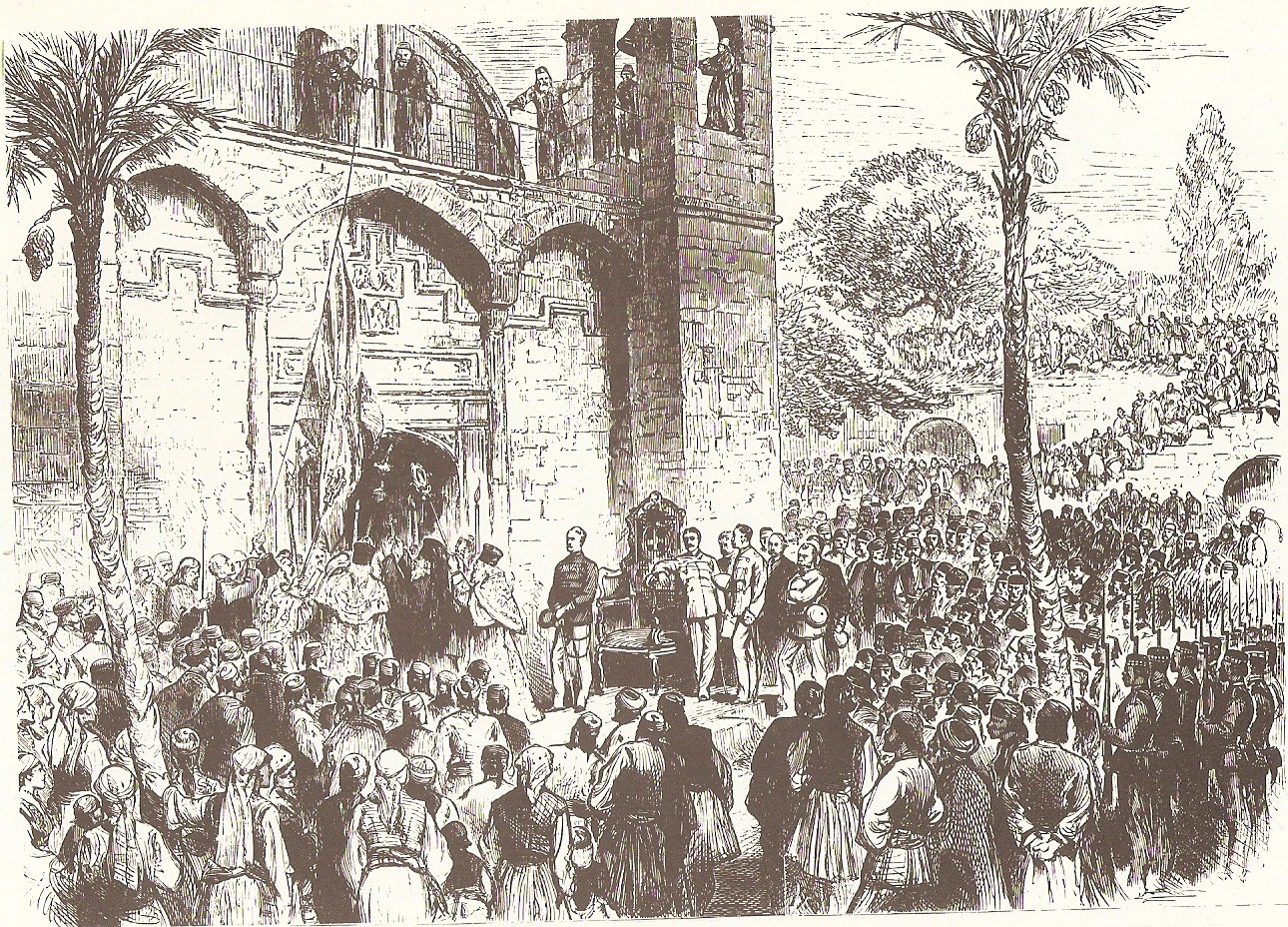British Cyprus (1914ŌĆō1960) on:
[Wikipedia]
[Google]
[Amazon]
British Cyprus was the island of Cyprus under the dominion of the British Empire, administered sequentially from 1878 to 1914 as a British protectorate, from 1914 to 1925 as a unilaterally annexed military occupation, and from 1925 to 1960 as a


 A British protectorate under nominal Ottoman
A British protectorate under nominal Ottoman
British Rule in Cyprus (1878-1960) - cypnet.co.uk
{{Authority control British Cyprus, Cyprus and the Commonwealth of Nations 20th century in Cyprus Former colonies in Asia 1914 establishments in Cyprus 1960 disestablishments in Cyprus CyprusŌĆōUnited Kingdom relations History of the foreign relations of the United Kingdom 1878 establishments in Europe 1960 disestablishments in Europe 1878 establishments in Asia 1960 disestablishments in Asia States and territories disestablished in 1960
Crown colony
A Crown colony or royal colony was a colony administered by The Crown within the British Empire. There was usually a Governor, appointed by the British monarch on the advice of the UK Government, with or without the assistance of a local Counci ...
. Following the London and Z├╝rich Agreements of 19 February 1959, Cyprus became an independent republic on 16 August 1960.
History

Formation
Cyprus was a territory of the Ottoman Empire, lastly as part of the Vilayet of the Archipelago, since it wasconquered
Conquest is the act of military subjugation of an enemy by force of arms.
Military history provides many examples of conquest: the Roman conquest of Britain, the Mauryan conquest of Afghanistan and of vast areas of the Indian subcontinent, t ...
from the Republic of Venice in 1570ŌĆō71.
 A British protectorate under nominal Ottoman
A British protectorate under nominal Ottoman suzerainty
Suzerainty () is the rights and obligations of a person, state or other polity who controls the foreign policy and relations of a tributary state, while allowing the tributary state to have internal autonomy. While the subordinate party is cal ...
was established over Cyprus by the Cyprus Convention of 4 June 1878, following the Russo-Turkish War, in which the British occupied the island as a consequence of the Ottoman Empire's actions throughout the duration of the war. Cyprus was then proclaimed a British protectorate and was informally integrated into the British Empire. This remained in place until 5 November 1914, when after the Ottomans joined the Central Powers, in turn entering World War I, Britain declared the complete annexation of Cyprus into the British Empire, albeit under a military administration status. The Crown Colony of Cyprus was proclaimed a decade later, in 1925, after Britain's annexation of Cyprus was verified twice, firstly in the Treaty of S├©vres in 1920, then confirmed again in the Treaty of Lausanne
The Treaty of Lausanne (french: Trait├® de Lausanne) was a peace treaty negotiated during the Lausanne Conference of 1922ŌĆō23 and signed in the Palais de Rumine, Lausanne, Switzerland, on 24 July 1923. The treaty officially settled the conflic ...
in 1923.
Proposed union with Greece
King Paul of Greece declared that Cyprus desired union with Greece in 1948. A referendum was presented by the Orthodox Church of Cyprus in 1950, according to which around 97% of the Greek Cypriot population wanted the union. The Greek petition andenosis
''Enosis'' ( el, ╬ł╬ĮŽēŽā╬╣Žé, , "union") is the movement of various Greek communities that live outside Greece for incorporation of the regions that they inhabit into the Greek state. The idea is related to the Megali Idea, an irredentist conc ...
became an international issue when it was accepted by the United Nations.
Cyprus Emergency
The Cyprus Emergency was a military action that took place in Cyprus from 1955 to 1959. The Cyprus Emergency primarily consisted of a campaign by the Greek Cypriot military groupEOKA
The Ethniki Organosis Kyprion Agoniston (EOKA; ; el, ╬Ģ╬Ė╬Į╬╣╬║╬« ╬¤Žü╬│╬¼╬ĮŽēŽā╬╣Žé ╬ÜŽģŽĆŽü╬»Žē╬Į ╬æ╬│Žē╬Į╬╣ŽāŽäŽÄ╬Į, lit=National Organisation of Cypriot Fighters) was a Greek Cypriot
Greek Cypriots or Cypriot Greeks ( el, ╬Ģ╬╗╬╗╬Ę╬Į╬┐╬ ...
to remove the British from Cyprus so it could be unified with Greece.
Independence
Signed on 19 February 1959, theLondon and Zurich Agreements
London is the capital and largest city of England and the United Kingdom, with a population of just under 9 million. It stands on the River Thames in south-east England at the head of a estuary down to the North Sea, and has been a major se ...
started the process for the constitution of an independent Cyprus. The United Kingdom granted independence to Cyprus on 16 August 1960 and formed the Cyprus, Republic of Cyprus. Archbishop Makarios III, a charismatic religious and political leader, was elected as the first president of independent Cyprus. As part of the independence agreement, the United Kingdom retained possession of the Sovereign Base Areas of Akrotiri and Dhekelia as a British Overseas Territory.
In March 1961 at the 1961 Commonwealth Prime Ministers' Conference, Cyprus became an independent republic in the Commonwealth of Nations, and Archbishop Makarios III became both a Commonwealth head of state and a Commonwealth head of government.
In 1961, the Republic of Cyprus became the 99th member of the United Nations.
See also
* List of colonial governors and administrators of British Cyprus * History of Cyprus (1878ŌĆōpresent)Notes
References
External links
*British Rule in Cyprus (1878-1960) - cypnet.co.uk
{{Authority control British Cyprus, Cyprus and the Commonwealth of Nations 20th century in Cyprus Former colonies in Asia 1914 establishments in Cyprus 1960 disestablishments in Cyprus CyprusŌĆōUnited Kingdom relations History of the foreign relations of the United Kingdom 1878 establishments in Europe 1960 disestablishments in Europe 1878 establishments in Asia 1960 disestablishments in Asia States and territories disestablished in 1960